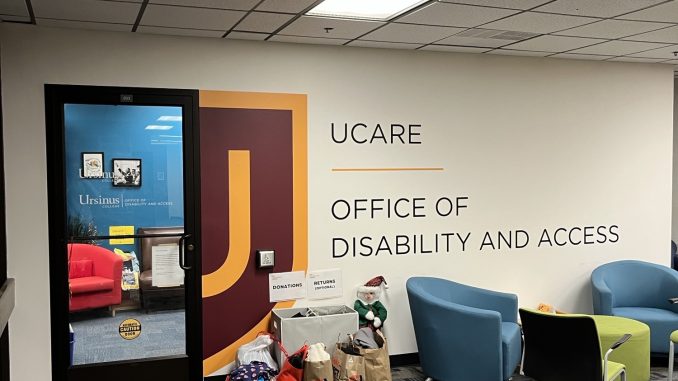
Details
Article by Colin Brier <cobrier@rsinus.edu>
According to the Washington Post, college students have been showing up for presidential elections in record numbers in recent years (1), but the number of college-aged Americans who vote in local elections is still below every other age group.
According to Pennsylvania voter registration data, Pennsylvanians aged 18-24 make up only 8% of the state’s voters, despite the fact that the age range makes up 12% of the population (2)(3). For Associate Director of UCARE Angela Upright, getting students registered and involved in local elections is a “top priority.” UCARE has been running UC Votes for several years, but Upright is trying to build on this foundation by “promoting voter registration and education.” Upright and UCARE Grad Assistant, Nic Schoppe, are working in conjunction with around 25 students and faculty to get students registered to vote.
There are several reasons why college students are less bothered with their local elections. Many students have busy schedules, with participation in sports or clubs, or working jobs in the evenings. Others may not see local elections as important because they are transplants to the area, and unconcerned with the local community beyond Ursinus. To increase the visibility of voter registration, the organization sets up tables in front of Olin Hall every weekday from 11:30-1:30.
Schoppe and Upright understand that it can be difficult for students to be engaged in elections at all levels but want to encourage students to get involved in their local community. “This is where you live, so the decisions that local leaders make and govern on will impact you directly,” said Schoppe.
To motivate students to become interested in local elections, UCARE needs to know what issues matter most to students. Citing examples of better lighting and safer crosswalks being added to Main Street for students, Schoppe explains that those decisions are made at the level of local government. Upright added that this is where student volunteers matter the most. To get students registered to vote in local elections, organizations like UCARE need to understand what issues matter to those students.
Another barrier that can prevent students from engaging in their local elections is a lack of political education regarding the positions that are up for election. This type of information is exactly what UCARE seeks to get out to students in the lead-up to elections. Schoppe noted that ballots can be overwhelming to students without this information: “We are trying to make a push to put some information out there about ‘What is a Prothonotary?’ ‘What is a Register of Wills?’ so that students actually know they’re voting for and what they are voting for.” Among issues on the ballot this year? The Collegeville Borough Council, responsible for the lights and crosswalks on Main Street that Upright alluded to, members of the state and county courts who will play a part in changing laws, and the Sheriff who will help to enforce those laws at the county level.
With so many names and positions on the ballot this time of year, UCARE has to come up with engaging ways to demystify local politics. Among the initiatives this year is a mock ballot event where students will have a chance to learn about the names and positions on their ballot before they head to the polls. UCARE will be hosting the mock election in Olin Plaza on October 18th from 11 AM to 1 PM depending on the weather, with Lower Wismer being planned as a backup location if it is raining. According to Schoppe, this event is going to be beneficial, as “it’s all in one place so that students can actually practice filling out the ballot and reading the information that we’re going to provide.”
As for those who are not planning to vote in Collegeville, but rather at their home addresses if they live out of county or out of state, UCARE has resources for those students as well. For students who are unable to return home to vote, deadlines are approaching to apply for mail-in ballots. UCARE has been sending out registration information to students via email and will also be able to provide this information at their table in Olin Plaza. Upright notes that UCARE is always looking at ways that UC Votes can be improved, whether by looking at new locations to set up their tables or establishing new events like this year’s mock ballot election event. “We’re only as impactful as the people we’ve reached…” says Upright, “so if people have feedback, or thoughts, or want to be a part of it, all are welcome, and we hope people take part.” For more information about voter registration and this year’s election, stop by UCARE’s table in Olin Plaza any weekday between 11:30 and 1:30 or email ucare@ursinus.edu. Become a more active part of your community this fall!
